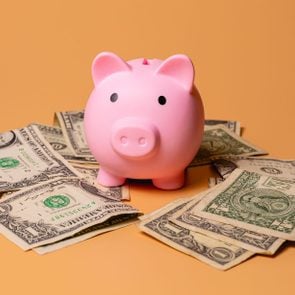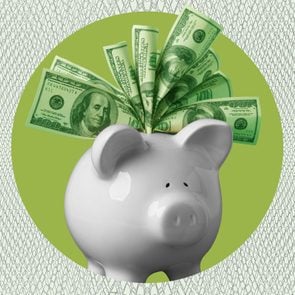How to Win the Powerball Jackpot: 4 Strategies That Can Boost Your Odds
Updated: Mar. 11, 2024
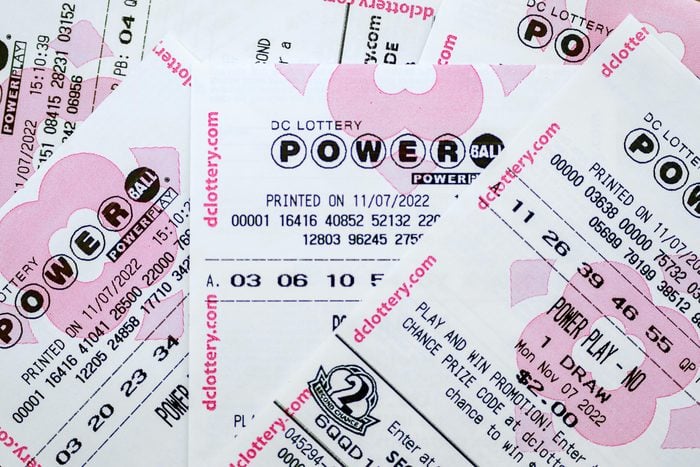
Lotto is a game of chance, but can strategy also come into play? We asked statisticians and looked at the data to find out how to win Powerball.
Admit it: You’ve been eyeing that Powerball jackpot. You know you probably won’t win … but what if you did? Before you even plunk down money for a ticket, you’re dreaming of all the places you’d go, the people you’d see and the things you’d do with those millions (or billions). Sure, you know it’s a long shot, but does it really boil down to luck, or can you learn how to win Powerball with a few smart strategies?
People who study numbers and probability for a living would be the people to ask, which is exactly why we interviewed two statistics professors—including one who won $100,000 in a 2016 Powerball drawing. Should you pick the most common lotto numbers or get your tickets in the state that produces the most lottery winners? Or maybe buy a certain number of tickets? Here’s what you need to know about how to increase your chances of winning the next time you buy a Powerball ticket—and even increase your prize money.
Get Reader’s Digest’s Read Up newsletter for more knowledge, humor, cleaning, travel, tech and fun facts all week long.
How do you win Powerball?
Winning at Powerball starts with buying a ticket and picking five numbers between 1 and 69, plus one “Powerball number” between 1 and 26. So how many numbers do you need to win Powerball? Just one—as long as it’s the Powerball number. Of course, you won’t win the big bucks with just one number: You’ll get $4. You’ll still get only $4 if you also match one of the other balls.
The prize goes up to $7 if you match any three numbers, to $100 if you match any four numbers and to $50,000 if you match the Powerball number plus four other numbers. Even if you don’t match the Powerball number, matching the other five is worth $1 million. And if you’re lucky enough match all six numbers, that earns the Powerball jackpot (which is based on ticket sale revenue and gets bigger as more people play). If more than one ticket matches, the jackpot prize is split among the winning tickets.
For an additional sum, you can sweeten the deal (on all but the jackpot) with the Power Play number, which multiplies whatever you’ve won by 2, 3, 4, 5 or 10 (depending on the Power Play number that’s drawn). In fact, that’s precisely how Fairfield University mathematics professor Nicholas Kapoor turned the $50,000 he won in 2016 into $100,000. Talk about easy money!
How much of Powerball is luck vs. strategy?
Powerball is primarily about the luck of the draw, Kapoor tells Reader’s Digest. Indeed, he never expected to win. “There are a fixed number of balls,” Kapoor explains, “which translates to a fixed number of possible combinations.” The probability that any given combination will be drawn is always one out of that fixed number of combinations. “Every time you play, the probability remains the same. Even if you’ve won before, you still have the same odds of winning as anyone else who buys a ticket.”
But, we asked Kapoor, don’t some numbers seem to come up more (or less) than others? And don’t some people use that sort of information—gleaned from websites devoted to tracking lottery statistics—for the very purpose of making “educated” lottery picks? While the answers to those questions are “yes” and “yes,” Kapoor resists the notion of an educated Powerball pick. Another statistician we spoke to, Matthew Luke Kovach, who teaches at Purdue University, concurs. That said, as we dug into the data, we came to realize there may be some room for strategy in Powerball.
How can you increase your odds of winning Powerball?
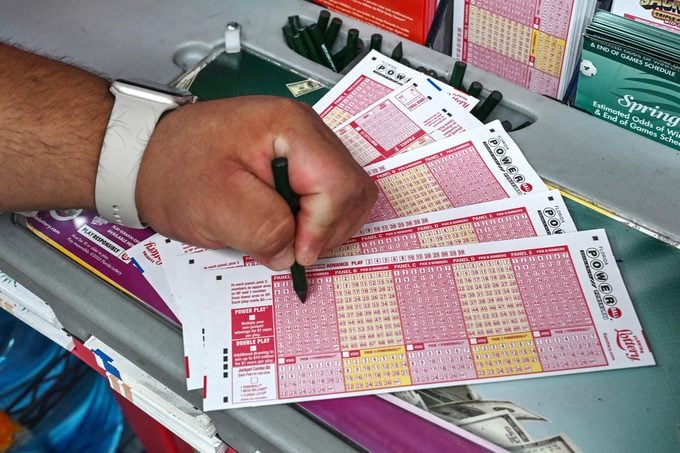
Before we delve into the strategies, let’s talk about those odds. The odds of winning any Powerball prize are approximately 1 in 25, which isn’t half bad. On the other hand, the odds of winning the big jackpot are closer to 1 in 292 million. But, hey, someone’s gotta win, right? And if you’re buying a ticket anyway, it certainly can’t hurt to try these tricks.
Buy multiple tickets
“Playing more than one ticket increases your odds because you’ve given yourself more than one opportunity to win,” Kapoor explains. However, you might want to rein it in a bit in terms of quantity, especially if you’re doing so with sums that you might otherwise be putting into safer investments (i.e., investments that boast odds better than 1 in 292 million). Experts caution against treating lotto tickets as actual investments, in much the same way they caution against getting caught up in crypto scams.
Evenly distribute the numbers among odds and evens
Some Powerball veterans say that because there are an equal number of odd and even numbers for each possible pick in a Powerball string, it follows that the winning combination will tend to comprise an equal number of odd and even numbers. The odd/even strategy may be particularly useful for those who play Powerball regularly and often.
Kapoor and Kovach, however, maintain that the odd/even strategy is inconsistent with the laws of probability. That being said, if you were to conduct thousands of drawings of six numbers, you would eventually come to see that equal percentage of odds and evens. The thing is, Powerball does its drawings a mere three times per week. And that’s not often enough to guarantee that such a pattern will eventually emerge, Kapoor explains.
Avoid the statistically least-drawn numbers
Some Powerball veterans and lotto winners employ a strategy of picking numbers that lottery data-gathering sites identify as the statistically “least drawn.” The theory is that numbers that have been drawn the least number of times will eventually become due or even “overdue” to be drawn.
What isn’t so clear is the date range from which you’d want to select your overdue numbers. For example, from the data compiled on the analysis site Lotto Numbers, it would appear that the most overdue numbers based on all drawings in Powerball’s history land within the range of 51 and 69. But if you’re looking more specifically at the period between 2015 and 2023, the least-drawn numbers are different.
Choose frequently drawn numbers
Just as some Powerball numbers have come up less often historically, some come up with more regularity. And some veteran Powerball players swear that numbers that have already been drawn frequently are more likely to be drawn again.
While this strategy certainly won’t hurt your odds, it may not help them either. According to Kapoor and Kovach, there’s no such thing as a “lucky” number in the lottery context because every time a number is drawn, any one number is as statistically likely to be drawn as any other. Of course, that’s not to say that there’s no such thing as a lucky number in general.
Should you use your own lucky numbers?
As you’ve probably already guessed by now, using numbers that have personal meaning to you (e.g., your birthday or your anniversary) certainly can’t hurt your chances of winning at Powerball. And this is true despite the fact that by using calendar dates, you’re limiting your number choices to those between 1 and 12 or 1 and 31. Again, it’s because all numbers have an equal chance of coming up in a draw. In fact, Kovach endorses this strategy because it brings to mind the good things in your life. Powerball is, after all, primarily a form of entertainment.
On the other hand, your own lucky numbers won’t necessarily increase your odds. Moreover, if you do win, you may end up having to split your prize with others who had the same idea as you. To help counteract that risk, if you’re basing your picks on your own personal set of “lucky birthdays,” you might want to consider which of yours are among the rarest birthdays and lean toward those.
Are your odds better with Quick Pick or playing your own numbers?
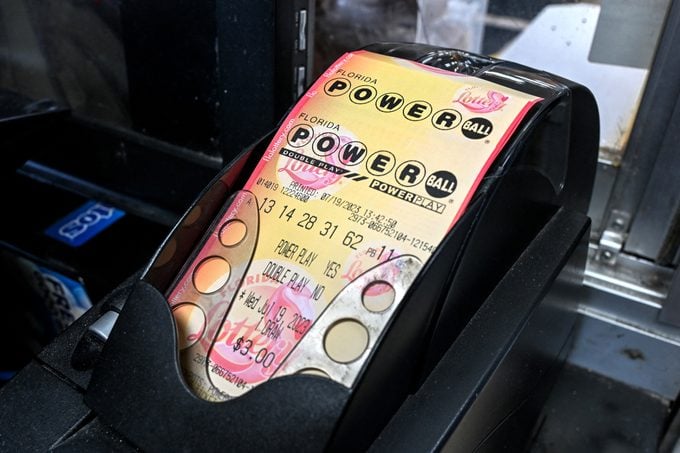
Based on the laws of probability, the odds of winning Powerball are the same whether you choose your own numbers or leave it to Quick Pick. But … the vast majority of Powerball jackpot–winning tickets had their numbers chosen by computer via Quick Pick, according to the Multi-State Lottery Association. In fact, a mere 18% of jackpot-winning tickets had numbers chosen by players!
So how can we reconcile these seemingly opposing data points? It’s actually quite simple, according to the Association: “There are more winners from Quick Pick simply because more ticket purchases are [made by] Quick Pick.” In other words, a player’s selection method does not affect the probability of matching the winning numbers drawn.
Along the same lines, the Association notes that there are typically more prize winners in urban areas versus rural areas. It’s not that luck favors cities, but rather that more tickets are sold in cities. And statistically speaking, more winners will come out of areas where more tickets are sold.
How can you boost your Powerball winnings?
Now that you know all about the strategies for how to win Powerball, let’s talk about how to boost the amount you’ll actually take home. As noted earlier, Kapoor turned his $50,000 Powerball winnings into $100,000 simply by purchasing a Power Play ticket. The bottom line is that if you have any legitimate opportunity to buy a ticket that can potentially increase whatever you win by any factor at all, it’s worth considering. It may not answer the question of “how to win Powerball,” per se, but it guarantees that if you do win something (other than the jackpot prize), you’ll win bigger than you would have without that extra boost. And that’s undeniably a Powerball win, in and of itself.
Are your chances better at winning Powerball or MegaMillions?
Like Powerball, MegaMillions is a multi-state lottery game with an enormous jackpot, and it requires you to choose six numbers and match as many as possible. But your chances of winning are generally worse with MegaMillions—for the simple reason that there are more possible numbers and therefore more possible combinations.
Powerball’s first five numbers range from 1 to 69, while MegaMillions’s range from 1 to 70. The fact that the Powerball number goes from 1 to 26 but MegaMillions’s equivalent (the Megaball) goes from 1 to 25 does little to offset the difference. Quite the contrary: The odds of winning the MegaMillions jackpot are 1 in 302,575,350, compared with Powerball’s 1 in 292,201,338.
Which lotto games have better odds?
Powerball and MegaMillions aren’t the only games out there, and many state lotteries and scratch-offs offer better odds of winning. Just be aware that those “better odds” almost invariably come with less prize money. (Translation: Billions are off the table.) Still, if you can win something, you’ll have more in your bank account than you do right now, so why not give it a shot and see if you can make some quick cash?
About the experts
- Nicholas Kapoor is a math professor at Fairfield University, a private Jesuit Catholic university located in Fairfield, Connecticut.
- Matthew Luke Kovach is an assistant professor of economics in the Mitchell E. Daniels, Jr. School of Business at Purdue University.
Sources:
- Powerball: “9 Ways to Win!”
- Powerball.net: “Powerball Quick Pick vs Own Numbers”
- Multi-State Lottery Association
- LottoNumbers.com: “Lotto Statistics”
- MegaMillions: “FAQs”
- The Hill: “Powerball or Mega Millions: Which is better for you?”


